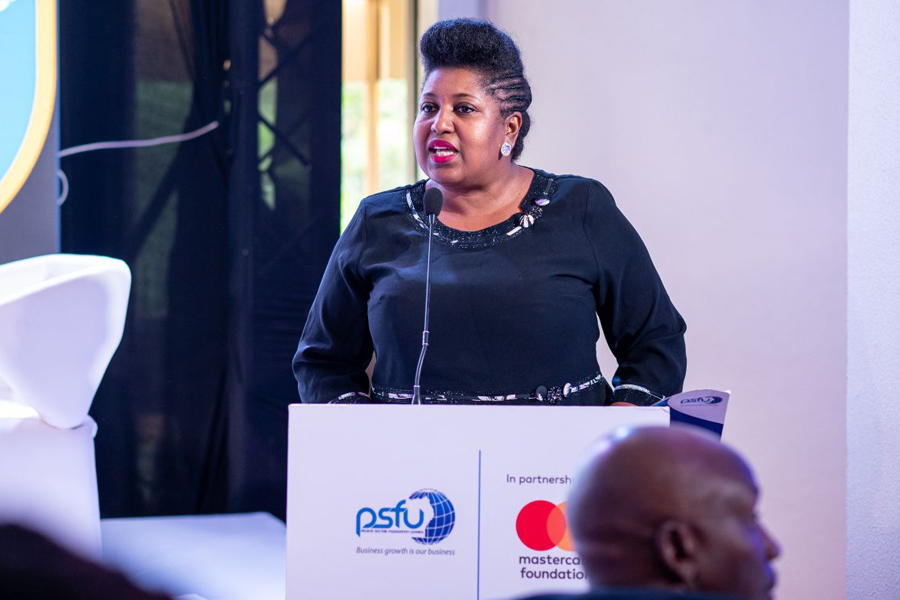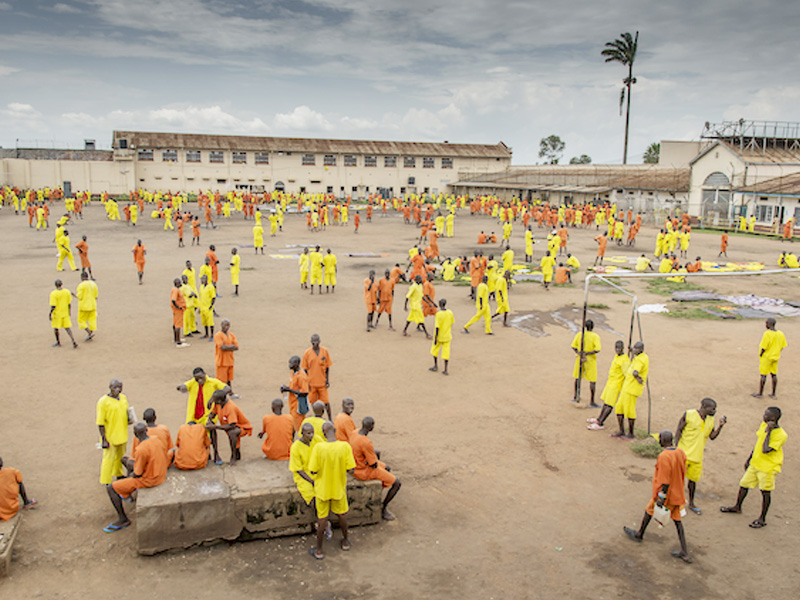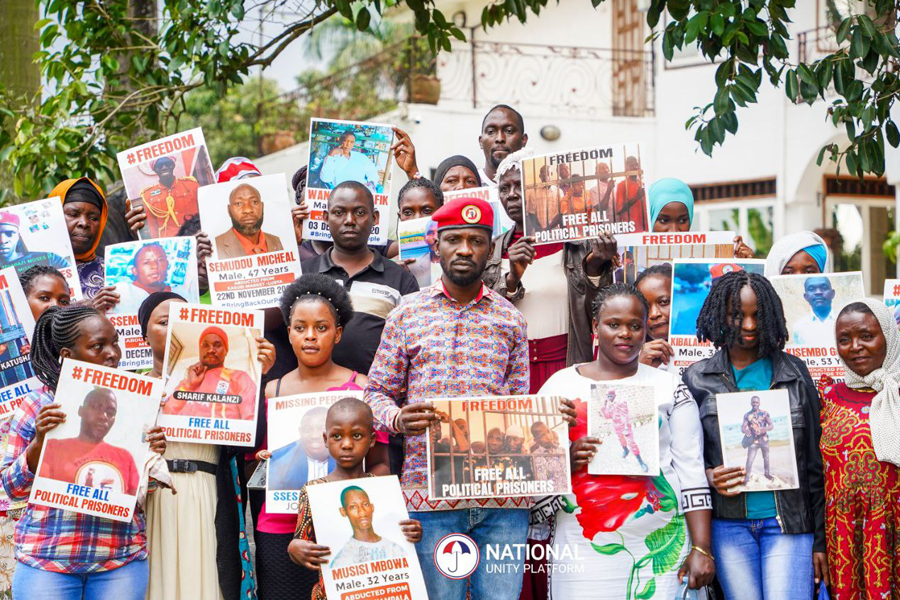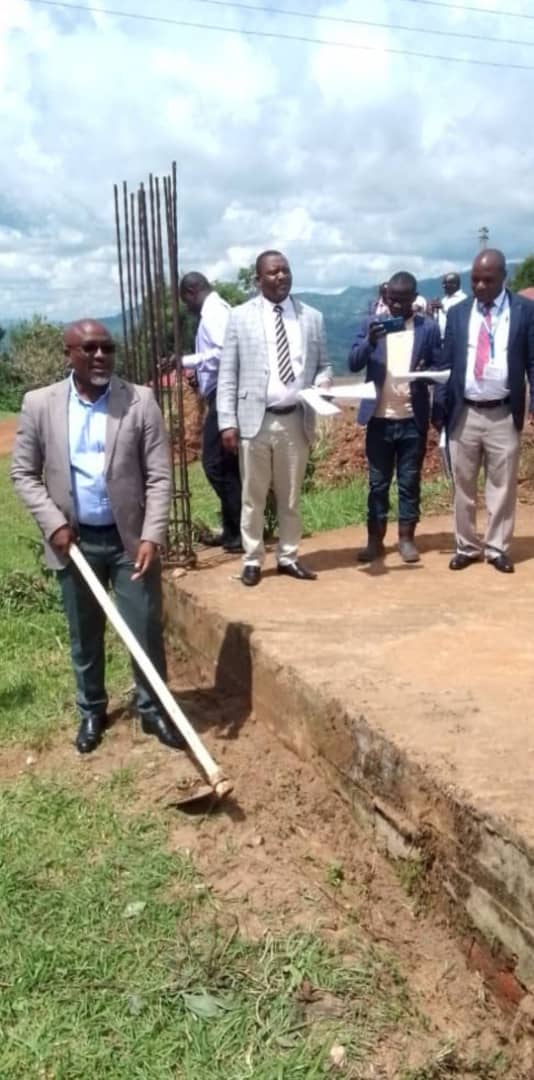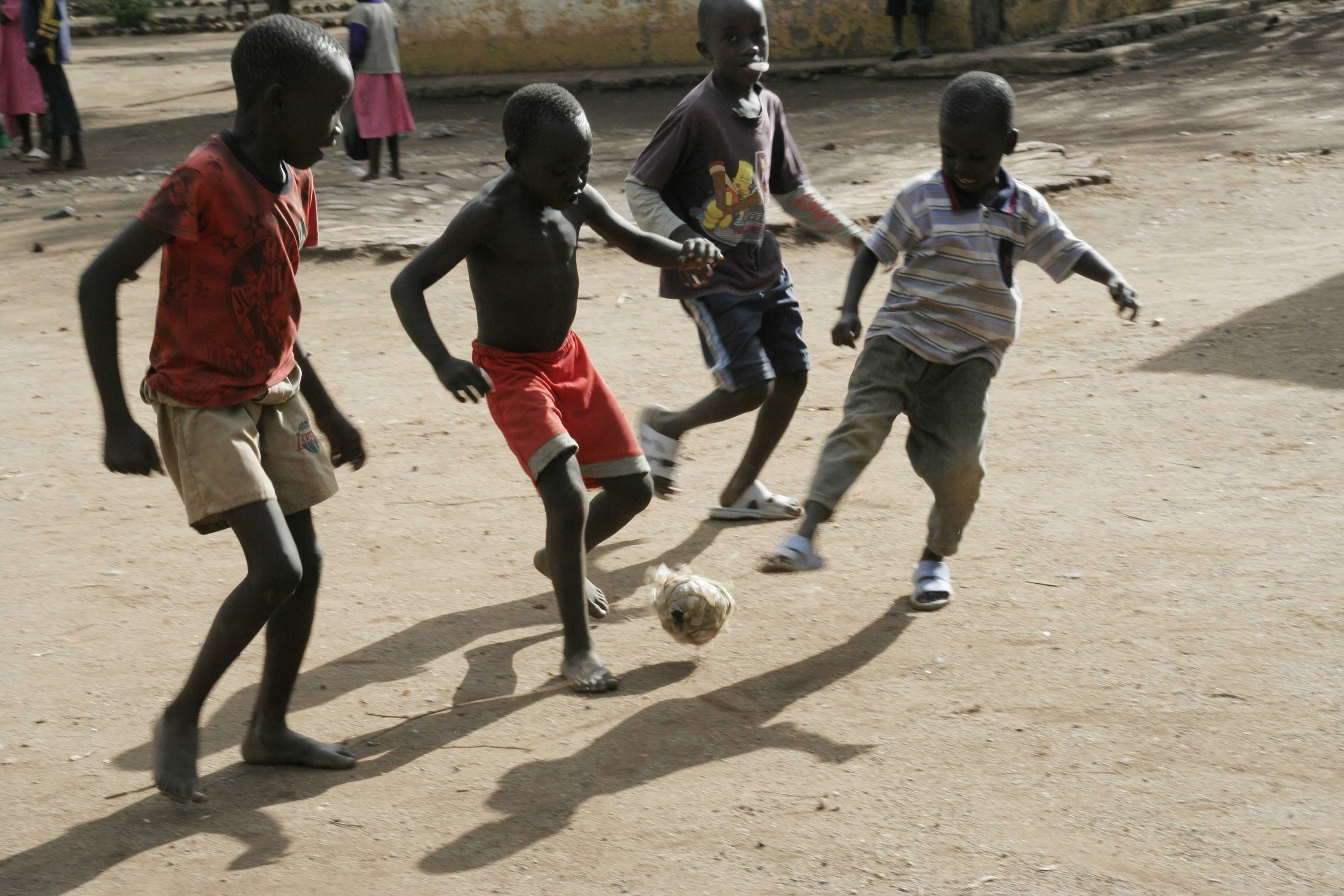Big Interview: "We shall lockdown the country again if..."
Recently, the government warned that it is considering reinstating the earlier lockdown measures as a way of containing the second wave of the Covid-19 variant following a daily rise in infections countrywide.
According to President Museveni, Uganda is most likely to be fully re-opened in 2022 after at least 4.8 million people have been fully vaccinated and at the moment, the country is still under a partial lockdown with some sectors still closed.
In an interview with The Nile Post, the Minister of State for Primary Health Care, Joyce Moriku Kaducu said reinstating another lockdown will depend on a number of factors.
Excerpts below:
******************************************************************************
Uganda was ranked as one of the best performing countries in the world in suppressing Covid19. In your view do you think these findings are genuine?
Last year by the end of August, Uganda was ranked actually the first in Africa in terms of controlling the coronavirus and we were the tenth in the globe. The ranking is very genuine. It is basically because of the interventions that were put in place right from the beginning of Covid-19.
Our strategic interventions were put in place before we got the first case in the country. Schools were closed, churches were not functioning and all those were done to really reduce and prevent infection at that time.
On top of that, the community played a very important role, people adhered to those set standard so all those interventions helped put Uganda on the map.
How prepared is the country for the second wave of Covid-19?
It is all about the season. Recall that from the month of October, November, December{2020} that was the peak of the virus. The country received a lot of rainfall, and of course the infection rate went up. Previous studies which were done show that when it is the dry season because of the sun heat, outdoor activity, the rate of infections goes down and when it is a rainy season, the infection goes up.
We are more prepared than before because we have got experience, we have got knowledge and we have now got all what it takes to prevent, mitigate and to control the infection.
Should we expect another lockdown given the fact that the second wave of Covid-19 appears more dangerous?
It will depend on the scientific advice but what I can say is that if we don’t want to get a lockdown, certainly we need to follow the set standards. We really need to do a lot of evaluation and a lot of analysis for us to start speaking about locking down but we can put in place the interventions, strategies that we previously brought on board.
The strategies like having a curfew, keeping the bars closed, no night discos, keeping social distance in the markets, churches etc those are the strategic interventions that have helped the country to do very well.
We need to weigh between the economy vis-a-vis the health of the community but by Constitution we have the mandate to protect our people. It is everybody’s responsibility to ensure that he or she does his or her part in controlling the infections.
Many Ugandans have refused to receive Covid-19 vaccine and there is fear that these vaccines may expire. What are you planning to do?
The best we did was basically to speak to our people continuously. We have been speaking to our people about the benefit of having the vaccine vis-a-vis the risks of Covid-19. The risk is that when you get {the vaccine}, you have less chances of progressing into severe disease and gradually you die. The benefit is that you may not progress into a severe case. You can still get Covid-19 and you remain at a moderate state which can be managed at the community level.
There were reports that a good number of health workers shunned the Covid-19 vaccine. What does it mean for the general population?
The health workers initially didn’t embrace the vaccination exercise but along the way, we have been sensitising them. Eventually I think so far, the uptake is good. We are happy that the level of vaccination has gone up and we hope in the next two to three months, vaccines will get over. That means people are receiving the vaccine.
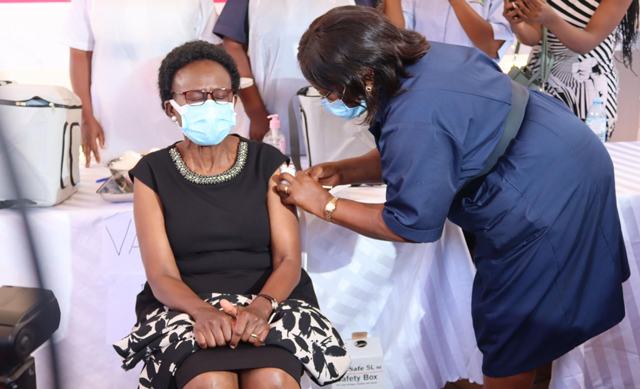 Minister of Health Jane Ruth Aceng receiving the Covid-19 jab
Minister of Health Jane Ruth Aceng receiving the Covid-19 jab
What are you going to do for those who have refused to receive the vaccine?
There is nothing much we can do for them. If really their conscience is disturbing them and they are not in position to get the vaccine, they still have to take preventive mechanisms. The strategies of keeping social distance, washing of hands and to ensure that they put on their face masks whenever they are working. Importantly, they need to keep physically fit.
We are encouraging people to eat a balanced diet with a lot of vegetables, vitamins C and also those with chronic disease have to take their medication regularly and follow medical advice. That is basically what we can tell them.
Uganda has said it is in the process of developing a vaccine. How far has this initiative gone?
As a country we are still [going] in the right direction and at the appropriate time, we will inform the nation [on the progress of the vaccine effort].
Government has put more effort in fighting Covid-19 hence giving less attention to other diseases. Don’t you think this will make the situation worse?
Covid-19 was a new virus. People didn’t know how to manage the virus but the doctors, the nurses and the health workers in Uganda did wonders and they made the country proud. Nevertheless, we have not left other conditions unattended to. We are trying our best to ensure that health workers attend to the mothers, immunisation has been ongoing and other conditions which are health related are being handled. Basically, we have not deserted other health problems but importantly we have now started integrating management of Covid-19 in all other diseases.
Uganda launched an initiative to end HIV/AIDs by 2030. Do you think this goal is achievable?
For HIV/AIDS, certainly it is achievable. The first thing is to ensure that our strategy 90-90 is followed because that was launched by the president and we are very optimistic, we shall be in position to achieve that goal.
There were many maternal deaths during the Covid-19 lockdown. What are you doing to fight teenage pregnancies in the country?
We are involving all sectors including the media, cultural leaders and that is why we are sensitising everybody, the leaders, parents, schools so that everybody does his or her part.
For the ministry of Health, we have put in place adolescent friendly health care services in all the health facilities where they can get information. They can be empowered, they can make decisions and participate in all health-related talks. Apart from the child health care services for the adolescence, we also have other interventions that we do in the community involving adolescents in terms of sensitising the community and parents.
What are some of the challenges you have encountered as the ministry in the fight against Covid-19?
The challenge still remains the issues of resources. We need resources to fight Covid-19. Without resources, without money, you cannot buy gloves, you cannot buy Personal Protective Equipment (PPE), you cannot buy whatever you need to buy. We still need resources to install more Intensive Care Units (ICUs). We still need resources to pay the health workers.


